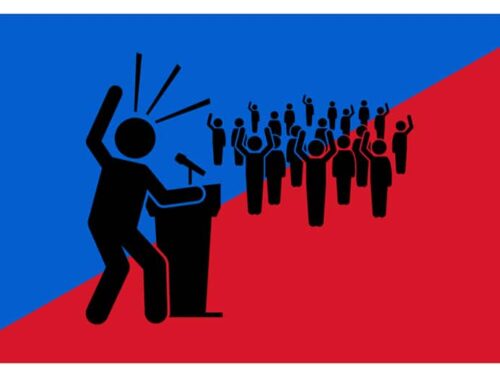
Recently, while speaking at a large human resources conference, I sat down for breakfast with an HR executive who, after hearing about the work I do in respect, immediately ranted “I’m sick and tired of employees being so sensitive.” Wow.
Now, to be fair, I’ve heard this complaint many times before, especially from baby boomers who had to put up with a lot of disrespect and struggle for everything they got as they were coming up through the ranks. But I rarely hear it from a seasoned HR professional, someone who’s job is to listen to people’s complaints and take them seriously.
When I asked her to be specific, she gave me a laundry list of employee complaints she’s heard over and over, almost always coming from the mouths of Millennials and Gen Z’s. “My boss is so rude and disrespectful,” “I’m being interrupted, ignored, and excluded,” and “no one ever gives me any feedback, good or bad” are the most common, she said. “They need to get over it,” she added.
No, they don’t.
In my line of work, I see these as legitimate complaints. A good, productive manager will…
- Treat employees with respect.
- Be inclusive of everyone on their team in speech and style.
- Provide employees with relevant, timely and actionable feedback.
First, rudeness and disrespect are often indicators of a toxic work environment which has been proven to be a key determinant for people quitting their jobs. In fact, a 2021 study by MIT’s Sloan School of Business found that employees are ten times more likely to quit their jobs due to a toxic work environment than due to dissatisfaction with their compensation. In short, most people don’t quit because the money is better elsewhere. So, to me, complaints about managerial disrespect are legit and should be taken seriously, not only because they might be indicators of even more serious negative, potentially very costly, bad behavior but also because they could result in good people leaving.
Additionally, when highly educated employees (research indicates Millennials and Gen Z’s are the most educated generations in terms of academic degrees and credentials) are excluded, interrupted or ignored by managers and colleagues, they feel disrespected, and insulted. “Why,” they say to themselves, “do I want to work in a place where no one is interested in my perspective?” and, “I didn’t accumulate $90K in grad school debt just to be treated like a nobody.”
I’m with them. Too often, when managers interrupt, shut down, ignore, and exclude their employees, it has more to do with personal biases and personality clashes than that the employee really has nothing of value to contribute. Listening to and considering employees’ ideas and perspectives is part of the manager’s job – one could reasonably argue that it’s the most important part of being a leader.
But managers are often under pressure to know everything and get s**t done quickly. Taking time to listen to their employees’ ideas and perspectives is not necessarily the highest priority. And yet, if they do, recent research shows that employees feel respected. And when employees feel respected and trusted by their leaders, they’re more likely to be loyal, to put up with crazy deadlines and the occasional negative behavior, and power through difficult challenges.
As for the third managerial imperative, giving feedback, it’s depressing how so few managers do this effectively, or at all. What’s even more depressing is that a recent study in the UK found that one quarter of all managers have never received any kind of “human management” training. That’s a serious skills gap; it’s no wonder people are complaining.
But coming back to that HR executive who is so fed up, as much as I wanted to call her out for blaming the victims (the employees), there’s a part of me that gets where she’s coming from. In general, Millennials and Gen Z’s speak their minds about their work environment and are very articulate when they do. This is because they know a lot more about what makes for a productive, effective organization than previous generations who had no training or education in organizational culture and development, and whose experience of disrespectful cultures feels “normal.”
So, she’s being regularly bombarded with very articulate and heartfelt complaints – most of them from folks half her age, with far less professional experience. She’s likely overwhelmed and wants it to stop. Or, she’s thinking, “Hey, I had to keep my head down and put up with this crap while I was coming up through the ranks, so you should too!”
Unfortunately, while this “you-need-to-tough-it-out” approach may have worked in the past; it doesn’t now. These days, with unemployment at historic lows, top employees don’t have to put up with disrespect, exclusion, and a feedback desert, they’ll just walk – most likely to a competitor.
Another possible driver of her poor attitude is that she works in an environment where respect, inclusion, and proper feedback are in short supply. And when you’re tasked with repeatedly defending your company’s leadership (as HR folks usually are), it can be exhausting hearing the same complaints about them over and over again.
Regardless, I’m not sure she sees the link between those complaints and her company’s culture. And if she did, she may feel powerless to do something about it. When you work for leaders who don’t value respect, or say they do but don’t walk their talk, getting them to change is very difficult.
However, there’s one more possible root cause for her venting to me at the HR conference, and it’s a troubling one: she really thinks her employees are a bunch of softies, whiners and entitled complainers for whom she has little or no compassion or respect.
To be blunt: if that’s how she truly feels about them, then she needs to consider another line of work. If you have no respect for the people you’re supposed to serve, then how good and effective will that service be?
It’s HR’s role to find ways to make a positive, powerful difference in the company culture. Blaming the victims of bad behavior and dismissing the concerns of employees you consider to be whiners and complainers may feel good and relieve stress in the moment, but it does nothing to address the underlying issues. Instead, find ways to leverage those complaints into organizational change for the better.




